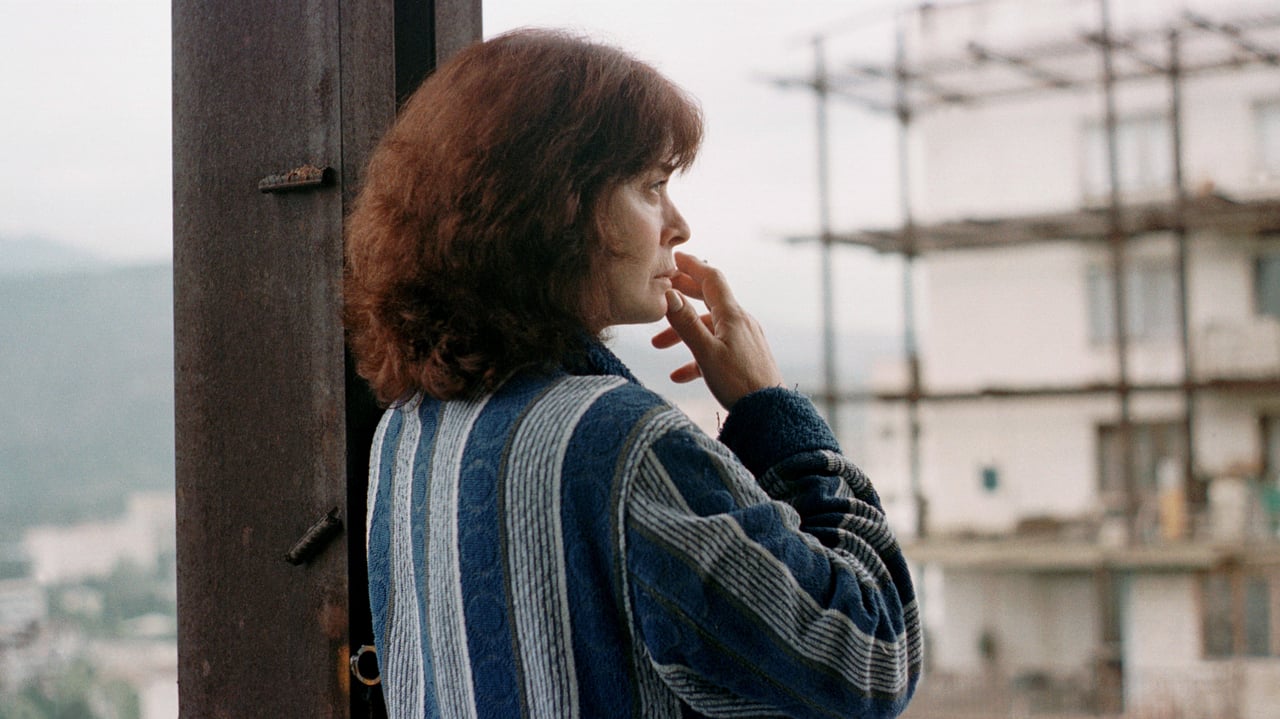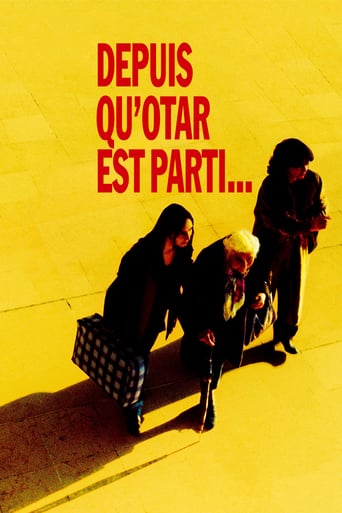Beystiman
It's fun, it's light, [but] it has a hard time when its tries to get heavy.
Whitech
It is not only a funny movie, but it allows a great amount of joy for anyone who watches it.
Billie Morin
This movie feels like it was made purely to piss off people who want good shows
Billy Ollie
Through painfully honest and emotional moments, the movie becomes irresistibly relatable
Armand
It is very difficult to define this film. In fact, every definition is fake because the essence of words or gestures is ineffable.Otar may be a type of Godot. The incarnated hope, the symbol of filling or image of any victim.The three women- variant of Tchekov's "Three sisters".But the reality is not so easy. In East Europe of Communist era, The Occident was the Heaven in all senses. It was the lost Paradis, the normality, the escape. A part of this wonderful world was shield against the daily nightmare. The fall of Communism was not the solution. Occident is a form of chimera not like education or mentality's result but like the personal treasure.The film is not a moral lesson or image of ex-Sovietic country in transition to European values. It is not an Andre Makine's page. It is only a short life's story and description of a subtle escape. It is slice of dream's rules, descending in past who remains only present and future.Esther Gorintin's acting is magnificent. A powerful character with a victim's mask, a fragile grandmother for who the life is not only fight or fear, past memories or sweet desire but a form of world's contemplation.In fact, Eka is the Ada's image. And Otar's death- solution of interior crisis of every character. The end of life in nostalgic universe.
cwx
This film presents a somewhat clichéd plot about concealing something from a family member for her own good, set off by the fact that it takes place in a little-known country, Georgia, is shot with emotional and artistic honesty, and contains a striking performance by a 95-year-old woman! And although I could see the beginning of the "deception" plot coming, there was at least one twist near the end that I did not anticipate, although I wasn't entirely blown away by it either. The final twist was a lot easier to anticipate, but then, I think that was deliberate. Definitely an interesting depiction of the other side of the disaporic experience, specifically, those who are "left" behind. Not entirely exceptional, but certainly worthwhile.
noralee
"Since Otar Left (Depuis qu'Otar est parti...)" deals heartbreakingly humanistically with many of the same political and family issues that "Goodbye, Lenin!" treats for humor -- today's ironic adjustment to capitalism in former U.S.S.R. satellites, the cross-generational responsibilities of those who lived under the Big Lies, and filial love.
With dialogue in French, Georgian, and Russian, debut writer/directer Julie Bertucelli focuses on a Francophile household of an earthy grandmother, mother, and daughter in Georgia and their relationships to the dead, absent, and present men who are satellites in their lives. While there's reminders of O. Henry's "The Gift of the Magi" and "The Last Leaf," not a single character is a cliche or dumb and none of their decisions is predictable. The audience literally holds its breath to see each woman's reactions as their emotional predicaments get more complicated in a weave of their own making. The actresses, from 21 to 90 years old, brilliantly convey the complex emotional see saw. A simply beautiful movie that's one of the best of the year.
jotix100
Watching this film reminded me of a Julio Cortazar short story about the same subject. In a lot of cases the surviving relatives of someone who dies overseas pretend all is well in order to keep the older family members out of the misery of knowing the real truth. The charade at the center of Julie Bertucelli's bittersweet film is Eka, the old Georgian lady whose son has gone to Paris in search of a better future. Eka, played magnificently by Esther Gorintin, is the main reason for watching this film.Eka has always been an admirer of the French culture. She speaks the language with gusto; much of the dialog is spoken in French. She is a survivor who doesn't forget the years under Stalin, who according to her thinking could have solved the present problems in Russia, as well as in Georgia, an independent republic now, but facing the after effects of the fall of the Soviet Union. Eka's love for her son is put through the test when he dies in a construction accident, but she never learns about it because Marina, her daughter and Ada, her granddaughter, think it's cruel to tell the old lady the truth.There is an incredible turn of events when Eka, who has sold her prized French books in order to go to Paris, learns about the fate of her son. It is at this point when her maternal instinct goes into play and in her mind, she decides to keep hope alive.This film was a complete surprise; it is without pretensions on a story that is plausible. One's heart goes to Eka, who is stronger inside than her fragile body leads us to believe. Nino Khomasuridze, as Marina, the daughter, and especially Dinara Drukarova, as Ada, are very good in the way they interact with Ms. Gorintin, who is without a doubt, the star of the film. Even though the film deals with the reality of death, the ending is very positive and speaks volumes about Eka, who will carry on in her dignified way forever.Thanks to Julie Bertucelli for bringing the story to the screen and we shall look forward to seeing any new film from her.

